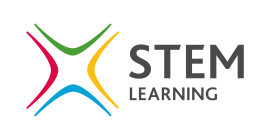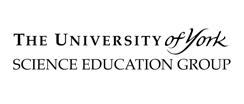GCSE Biology: Hormonal control (including non-communicable diseases)
Hormones and hormonal control is an abstract concept which many GCSE Biology students struggle with: students often appear to be misinformed about what hormones are and what here role is. It is worth spending some time giving an overview of the endocrine system and then allowing the opportunity for some independent study with students completing set tasks to research about individual hormones and their actions. This research can then be assesed to ensure students fully understand the action of different hormones
Students find it particularly difficult to explain each stage of the menstrual cycle and the role each hormone has. Understanding the role of the various hormones in the menstrual cycle will then enable them to explain how hormonal contraceptives work and evaluate hormonal and non-hormonal contraceptives. Students also need to be able to explain the use of hormones in modern reproductive technologies to treat infertility.
For this topic students need to be able to explain the concept of negative feedback with examples of the action of specific hormones, in particular adrenaline and thyroxine.
Whilst this list provides a source of information and ideas for experimental work, it is important to note that recommendations can date very quickly. Do NOT follow suggestions which conflict with current advice from CLEAPSS, SSERC or recent safety guides. eLibrary users are responsible for ensuring that any activity, including practical work, which they carry out is consistent with current regulations related to Health and Safety and that they carry an appropriate risk assessment. Further information is provided in our Health and Safety guidance.
BBC Menstrual cycle animation
This animation was designed for previous GCSE specifications, but is perfecrtly valid for new specifications, it shows how the levels of FSH and LH change during the menstrual cycle. The animation is found on page 3 of a 5 page BBC Bitesite resource on hormones. Pages 4 and 5 would also be useful reading material in respect of contraceptives and fertility drugs.
Providing students with this link and asking them to work through all 5 pages would provide a suitable homework activity or self directed study in class.
There are also numerous Youtube animations on hormonal control of menstrual cycle such as this one:https://www.youtube.com/watch?v=pNe43KGZTl8
Cell Signalling *suitable for home teaching*
This is a detailed resource including videos and worksheets which considers how hormones bring about their designated response through their effect on a cell. Whilst the level of detail in this resource is beyond the requirements of GCSE Biology specifications, it could be useful as extension work for more able students and/or as background reading for teachers on some current research theories
ABPI interactive webpage on Hormones
This interactive website provides information on hormonal control, mainly in humans , but there is also a page on plant hormones. The resource includes a glossary of terms, quick questions, animations and downloads for teachers.
Students could be directed to read through and answer questions on specific pages for homework or particular pages could be used within class as whole class starteer activies, for example page 4 has a good animation showing changes of the levels of LH, FSH, Progesterone and oestrogen during the Menstrual cycle.
Page 8 provides a useful summary and animation of the action of adrenaline
The drag and drop activity of page 5 would work well as a quick self-study activity. The quiz of page 10 is a good summary/revision activity that requires students to drag and drop labels onto a diagram of the human body to label organs and glans and then a second question to match endocrine glands with the correct hormone and then finally match hormones with function. This would work well as a timed challenge activity with students woring in pairs or threes
Controlling Change
This resource contains a range of desk based and practical activities along with detailed teacher notes. Section 4 is titled Chemical messengers. In this section the endocrine system is compared with the nervous system. Through a series of text activities, students compile information about some important glands, the hormones which they secrete and the functions of those hormones. The importance of feedback control in the endocrine system is also reviewed
Using hormones to treat infertility
This website contains a lot of information about the fertility drugs that are available and their mechanism of action. Students working in pairs could be tasked with extracting information from this website to provide a summary table of the drugs used, the hormone contained in the drug and how it can helps (i.e it's mechanism of action) in the treatment of fertility.
Debate kit - IVF
This kit encourages students to consider the benefits of, and the problems that may arise from, the use of hormones to control fertility, including in vitro fertilisation (IVF). The resource makes use of role play, which gives students a chance to explore the different sides of the issue and compare others’ points of view, as well as considering social, ethical and factual issues in an integrated way.
Included in the kit are eight debate cards outlining the opinions of a number of different fictional characters. The question posed for the debate is: Should IVF be available on the NHS?



